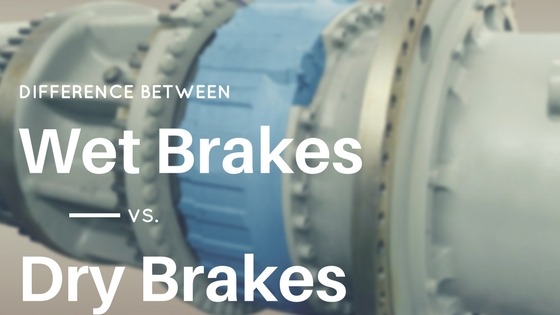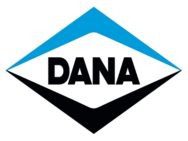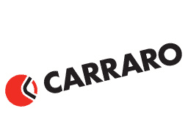
From a physics perspective, brakes on automobiles are built to convert kinetic energy (your moving vehicle) into heat energy (friction). In a car, for example, the car then stops because of the energy conversion.
When it comes to heavy machinery, power is needed to effectively keep it from moving. You cannot just use any product because there are times when heavy vehicles will meet extreme weather and conditions.
Therefore, you need to research what kind of tool to use to get that extra punch in the vehicle’s stopping power.
There are two main types of heavy machinery brakes that you can choose from here: wet and dry brakes. To determine which one will truly deliver in the most intense braking function, you should know the difference between the two.
What Exactly Are Wet Brakes?
Wet brake systems are less commonly used than dry brakes. The dry type is less expensive and is much simpler when it needs replacement.
Dry ones are mostly on cars, trailers, and trucks with their discs and drums uncovered. On the other hand, most people are not aware of the wet variety, but it offers more advantages.
A wet brake is also called oil cooled disc brakes because there is oil applied to the system to maintain its low temperature. When there is a need to step on the brakes even during extreme conditions, you can rely on this type of brake.
This type of brake is mounted internally right in the differential of the vehicle to prevent it from absorbing moisture. It’s placed there so that water will not affect the brake.
This means that you don’t have to learn how to dry wet brakes because these systems are immersed in oil for a reason.
How Do Wet Brakes Work?
A dry brake uses a single drum system, which means that it will start heating up when put under pressure, causing undue strain to the whole brake system.
Unfortunately, this can contribute to accidents and even the failure to use the brake at the right moment.
You will need regular maintenance and adjustment if you are using a dry brake system so that you do not have to worry about your safety.
Here is a better solution though: use oil cooled disc brakes instead. A wet brake has multiple discs, which it uses so that the stopping power is evident whenever you step on the brakes.
Can Wet Brakes Make Noise?
Brake noise, also known as brake chatter, is a common problem closely associated with wet brake systems. This noise is characterized by loud squeaky noises that are often accompanied by strong vibrations while braking on heavy, industrial vehicles.
This problem cannot be found in dry metal systems because it is caused by the interaction between the oil and the metal surface. In this case, the presence of the lubricating oil impacts the frictional characteristics of the braking surface.
This loud noise is caused by several factors, which include:
- Fluid Degradation – brake fluid loses its lubricating abilities when it degrades over time.
- Water Contamination – absorbed moisture can boil due to excessive amounts of heat, impacting the quality of the brake fluid.
- Insufficient Lubrication – an insufficient amount of fluid in wet brake systems diminishes the system’s effectiveness.
- Brake Friction Material Degradation – the degradation of the friction material means not enough friction is produced during braking, leading to noise.
According to experts, reducing the noise in wet brake systems requires using high-performance hydraulic fluids for your specific equipment.
These fluids must be specifically engineered for the equipment to provide sufficient lubrication and efficient wet braking performance. They also have high water tolerance and excellent wear protection to protect your equipment.
Wet Brakes vs. Dry Brakes
For most users, a dry brake system is more applicable to their vehicle because it is not as costly as a wet brake.
Additionally, you can replace this type of brake with ease, which is why some people can perform the adjustment on their own.
However, the advantages of a dry brake system over a wet one stop there.
Even though a dry brake is much easier to replace and you can quickly complete the task without the help of a mechanic, it requires more maintenance services than a wet brake.
In truth, it is not less expensive if you will consider your expenses on its upkeep.
Although you should not replace and fix a wet brake by yourself, it will not require too much work on your part.
In fact, this type of brake can withstand different harsh conditions. Maintenance is also a breeze since you do not have to keep changing and fine-tuning it for optimal performance.
Since a wet brake system is in the differential, you can stop the vehicle even when you are driving through water.
The brake will work effortlessly even on wet roads. This can give you peace of mind when it comes to continual safety and the overall performance of the brakes.
Downtime is much less than a dry brake as well, making wet brakes the wiser choice.
You want a reliable brake system that can help you save money, especially if you use heavy duty vehicles off the road and this is what a wet brake system can offer.
Are Wet Brakes Less Efficient?
While dry brake systems are sufficient for cars, trailers, and trucks, heavy industrial equipment and machinery may require more stopping power.
This is where wet brakes offer a significant advantage over conventional dry brake systems, which also makes them a more efficient choice over dry brakes.
Since heavy machinery is placed under a lot of pressure, multiple discs are used to alleviate the pressure placed on each disc when applying the brakes.
Since the brakes are constantly immersed in oil, they are kept cooler than dry brake systems, which means they overheat more slowly. They are under less stress, helping them wear more slowly and last longer. This prevents any issues with your brakes and other engine parts.
Finally, while wet braking systems cost more initially, they are worth the investment in the long run as they can help save a lot more money when you factor in their longevity and ease of maintenance.
Improve Braking Efficiency With K&L Clutch
If you’re looking for a braking system that offers more stopping power without damaging your equipment, then a wet braking system is what you need. For heavy industries and other demanding applications, K&L Clutch can equip your operations with efficient wet braking systems to boost equipment performance and boost overall operational efficiency. Contact us today using this form or call 817.267.0129 to gain access to the components you need!

























